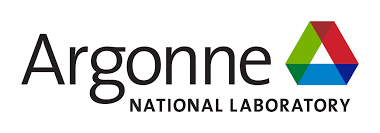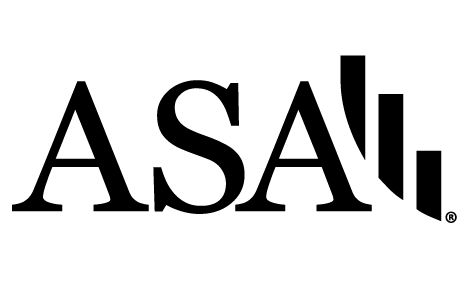
-
In light of recent events in Minneapolis, SIAM is extending the full refund deadline to February 23 to provide additional flexibility to conference attendees.
About the Conference
This is the conference of the SIAM Activity Group on Uncertainty Quantification.

This conference is being held in cooperation with the American Statistical Association (ASA) and GAMM Activity Group on Uncertainty Quantification (GAMM AG UQ).
Uncertainty quantification (UQ) is essential for establishing the reliability of predictions made by computational models. Such models are often deterministic, and the UQ discipline has traditionally focused on how to quantify uncertainty in that case. Statistical methods play a major role in that effort, and represent an alternative modeling strategy when less is known about the system of interest. The two approaches are naturally synergistic, and with the emergence of machine learning as a practical tool, it is becoming more important than ever to view the whole UQ ecosystem through a unifying lens.
UQ is application-driven and inherently interdisciplinary, relying on a broad range of mathematical and statistical foundations, domain knowledge, and algorithmic and computational tools. UQ26 will bring together mathematicians, statisticians, scientists, engineers, and others interested in the theory, development, and application of UQ methods. Major conference themes will include mathematical and statistical foundations, data-driven approaches and computational advances, applications of UQ in biology, medicine, environmental and climate sciences, decision making for societal benefit, and all areas of physical science and engineering. The goal of the conference is to provide a forum for exchanging ideas between diverse groups from academia, industry, and government laboratories, thereby enhancing communication and contributing to future advances in the field.
Connect with other attendees on LinkedIn.
Included Themes
Major Themes
- Computational advances, including quantum information science
- Data-driven methods
- Machine learning/artificial intelligence for UQ and UQ for machine learning/artificial intelligence
- Mathematical and statistical foundations of UQ
- UQ for decision making and societal benefit
- UQ in biosciences, bioengineering, and biomedicine
- UQ in climate and environmental sciences
- UQ in engineering
- UQ in physical sciences
Subtopics
- Adversarial and generative approaches to UQ
- Causal inference and graphical models
- Combining physical and statistical modeling
- Data assimilation, data fusion and control
- Design of experiments
- High-dimensional approximation and dimension reduction
- Infinite-dimensional analysis and approximation
- Inverse problems
- Model discrepancy
- Monte Carlo and quasi-Monte Carlo methods
- Multiscale, multilevel and multifidelity UQ methods
- Optimization for inverse problems and variational inference
- Optimization for machine learning
- Physics-informed machine learning
- Rare and extreme events
- Reduced-order models
- Remote sensing
- Risk analysis based on UQ
- Risk-averse and robust optimization
- Spatial statistical methods
- Surrogate models, emulators and Gaussian process methods
- UQ for complex and coupled systems
- UQ for digital twins
- UQ for spatial and spatio-temporal processes
- UQ-informed policy and decisions
- Verification and validation
Organizing Committee Co-Chairs
Robert Gramacy
Virginia Tech, U.S.
Robert Scheichl
Heidelberg University, Germany
Li Wang
University of Minnesota, U.S.
Organizing Committee
Maarten V. de Hoop
Rice University, U.S.
Mengyang Gu
University of California, Santa Barbara, U.S.
Dorit Hammerling
Colorado School of Mines, U.S.
John Jakeman
Sandia National Laboratories, U.S.
Annika Lang
Chalmers University of Technology, Sweden
Olga Mula
Eindhoven University of Technology, Netherlands
Houman Owhadi
California Institute of Technology, U.S.
Judith Rousseau
University of Oxford, United Kingdom
Elaine Spiller
Marquette University, U.S.
Panagiotis Tsilifis
GE Vernova, U.S.
Jonathan Weare
Courant Institute, New York University, U.S.
Karen Wilcox
University of Texas at Austin, U.S.
Get Involved
Sponsor, exhibit, or check out past content in our video and presentation archive.
About SIAM Conferences
Find all of the information you'll need to prepare for and navigate SIAM conferences, including conference guidelines and how to propose a new conference.

Funding Agency Support
SIAM and the Organizing Committee wish to extend their thanks and appreciation to the U.S. National Science Foundation for their support.
Conference Policies and Guidelines
Attendees should abide by the SIAM Code of Conduct and other conference policies and guidelines. Read all of SIAM's conference guidelines and policies, including the Statement on Potentially Offensive Material.
Contact Us
Questions about SIAM conferences? Get in touch with our staff.
Contact SIAM Conference StaffStay Up-to-Date with Email Alerts
Sign up for our monthly newsletter and emails about other topics of your choosing.






